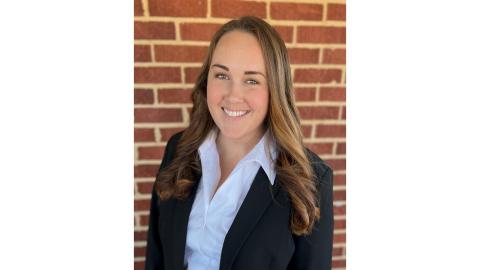Ragan R. Oakley Named as Assistant Director of the North Carolina Administrative Office of the Courts
Article contents

The North Carolina Administrative Office of the Courts (NCAOC) announced today that Ragan R. Oakley has been named as the new assistant director for the NCAOC. Oakley will fill a vacancy left by David Hoke who is retiring after 21 years of service with the NCAOC.
"We thank David Hoke for his over two decades of service to the Judicial Branch and North Carolinians in his role as assistant director," said Chief Justice Paul Newby. "We look forward to working with Ms. Oakley and are confident she will provide the strong leadership necessary for the successful administration of our courts to ensure that justice is delivered without favor, denial, or delay."
Oakley currently serves as assistant county attorney for Alamance County. Prior to her service in Alamance County, she worked with the North Carolina Business Court and served the Supreme Court of North Carolina first as a law clerk and then as legal counsel. Oakley graduated from Elon University School of Law and earned a bachelor of science degree in Human Services from Wingate University, graduating from both institutions with high honors.
About NCAOC Assistant Director
NCAOC's assistant director provides a broad range of services to the trial courts, including preparing and publishing an annual master calendar of superior courts which implements one of the nation's most comprehensive systems of rotation for superior court judges. The assistant director oversees the court schedule of all superior court judges, commissioning changes, special sessions, and coordinates adjustments as necessary. The assistant director manages and utilizes emergency judges for both superior and district court in order to meet a variety of needs throughout the court system.
Appointed by the chief justice of the Supreme Court, the assistant director handles special projects for the chief justice in the exercise of his constitutional and statutory mission and his role as head of the Judicial Branch. Other responsibilities include:
- Ensuring that all court proceedings have sufficient coverage in order to produce a verbatim record
- Monitoring the judicial education requirements of all appellate, superior, and district court judges
- Assisting in the determination of exceptional and complex business case designations and assignments under Rules 2.1 and 2.2 of the General Rules of Practice